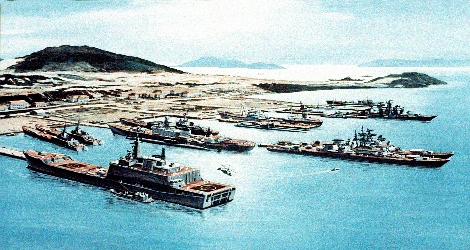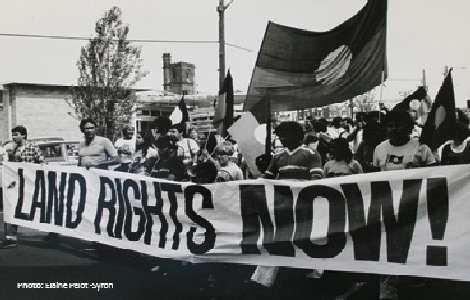Bibliography
BC Treaty Commission. “Sliammon First Nations and City of Powell River: Sharing ‘Best Practices’ in Intergovernmental relations and Planning,” http://www.bctreaty.net/files/pdf_documents/Sliammon_Best_Practices_Intergovtl_Plg.pdf (accessed October 23, 2011).
_________. “Treaty Commission Sees Lack of Urgency in Negotiations, News Release,” October 12, 2011, http://www.bctreaty.net/files/pdf_documents/newsrelease_Treaty- Commission-Sees-Lack-of-Urgency-in-Negotiations.pdf (accessed October 22, 2011).
_________. “Why Treaties? A Legal Perspective.” http://www.bctreaty.net/files/pdf_documents/why_treaties.pdf (accessed October 22, 2011).
Nozick, Robert. Anarchy, State and Utopia. Basic Books Inc.: New York, 1974.
Walzer, Michael. Spheres of Justice. Basic Books Inc.: New York, 1983.
Notes
[1] BC Treaty Commission, “Treaty Commission Sees Lack of Urgency in Negotiations, News Release”, October 12, 2011 http://www.bctreaty.net/files/pdf_documents/newsrelease_Treaty-Commission-Sees-Lack-of-Urgency-in-Negotiations.pdf (accessed October 22, 2011).
[2] BC Treaty Commission, “Why Treaties? A Legal Perspective.” http://www.bctreaty.net/files/pdf_documents/why_treaties.pdf (accessed October 22, 2011).
[3] Ibid.
[4] BC Treaty Commission, “Sliammon First Nations and City of Powell River: Sharing ‘Best Practices’ in Intergovernmental relations and Planning,” http://www.bctreaty.net/files/pdf_documents/Sliammon_Best_Practices_Intergovtl_Plg.pdf (accessed October 23, 2011).
[5] Ibid.
[6] Nozick uses historical principles of justice which claim that past circumstances or actions of people can create differential entitlements to things. He contrasts this approach to Rawl’s patterned approach which Nozick argues interferes with people’s free choice to do what they please with what they have. Nozick’s theory applies in a very particular way to the situation of the First Nations people of BC, who have commodities of great value due to them based on history. Nozick defends a minimalist government, which critiques the overreach of the government in taking away Aboriginal land. Robert Nozick, Anarchy, State and Utopia, (Basic Books Inc.: New York, 1974), 39. An additional component of the present process is the achievement of self-governance, which all admit will be challenging, given the limited experience of Aboriginal people in Western capitalistic environments. Therefore, once justice related to land titles is solved, other issues related to, but not directly arising from this past injustice, may occur. Also, additional issues of justice such as the role of women in resource distribution and participation in leadership may arise. These issues will require the application of other theories of justice. Ibid., 53-155.
[7] Ibid, 151.
[8] In Nozick’s theory of justice in terms of land ownership, he refers to Locke’s theory of acquisition in that a person can take an unowned object and mix it with their labor providing such that the previously “unowned thing” becomes permeated with what one owns. In this case however, the land was previously “owned,” and this has been affirmed both by the earlier treaties and by the Supreme Court of Canada. A further complication is that land, for most Aboriginal nations historically and in the present, is not considered individual property, but is held in common. Because the Lockean proviso stipulates that resources not be depleted for future generations, Nozick does have a relevant point to make. Care of the environment for future generations is important to the First Nations people, but how that will happen in the present context remain uncertain. Ibid.,174.
[9] In mentioning Michael Walzer’s description of the spheres of justice, I want to point out that there are various theories on distributive justice, each of which may be helpful in different situations or in the same situations to address varied social and cultural contexts. For Walzer, principles of justice should be based on “shared understandings” in each culture. In this context, non-Aboriginal Canadians must understand the values of First Nations people so that they might better live together as one society. In his description of complex equality, he advocates that different social goods be distributed in different ways, independently of each other, as opposed to dominance of one aspect, such as wealth or the dominant political party spilling into all spheres. Another dimension of Walzer’s work that is not developed here, but is pertinent to this situation, is the government’s blocking of legal justice for the Aboriginal people who were in many ways barred from citizenship and in this way barred from membership in the community, the primary social good to be distributed. Michael Walzer, Spheres of Justice, (Basic Books Inc.: United States, 1983), 31, 59.
Zoe Bernatsky belongs to the Canadian Province of the Sisters Servants of Mary Immaculate where she worked in Health Care Administration for many years before coming to Berkeley to study Theology. Since coming to Berkeley in 2007, she has completed an MTS, STL, and is presently working on an Ecclesial Doctorate in Moral Theology.







Unbound Social